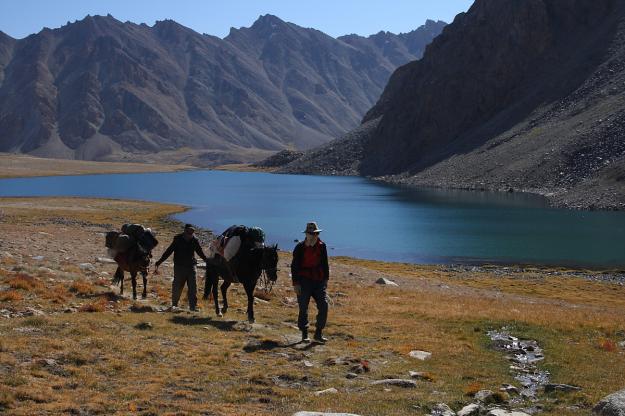
28/05/2015
Foundation for ecotourism being laid in the Pamirs says UIAA Mountain Protection Award winner
UIAA Mountain Protection Award Winner – Pamir Horse Adventure from UIAA – Climbing & Mountaineering on Vimeo.
Aslisho Qurboniev, 29, hails from Khorog, Tajikistan, which is nestled in the Pamir Mountains. In 2010 Quboniev founded Pamir Horse Adventure, a community-based ecotourism company that promotes and encourages sustainable tourism in the Pamirs. The organization was the recipient of the UIAA Mountain Protection Award in 2014. Qurboniev recently spoke to the UIAA about how the idea for the organization came about, how it is structured and where ecotourism is headed in Tajikistan.
UIAA: How did you get the idea for Pamir Horse Adventure?
AQ: Back in 2007, when I was working for a NGO in Tajikistan, I had the opportunity to travel across the country including the Pamir Mountains. I also worked as a travel guide because I spoke English and I knew the mountains well. That summer I realised that there is a great potential for adventure tourism in the Pamirs. I was also interested in conservation activities and got in touch with the Snow Leopard Conservancy and spoke with people in ecotourism like Robert Middleton. They gave me ideas on how to start my own organization. I did not have a business in mind when I started. I had more of an idea for a community-based company that would help the people of my region.
UIAA: Can you describe the set-up of Pamir Horse Adventure and how it works with the locals?
AQ: The organization is set up in such a way that we do most of the work of attracting the people to the beautiful Pamirs but the local people guide and benefit. There is an accountant and me and then we have the tour guides and nature guards for conservation activities. All the profits go to the community, and local villagers are the tour guides who take people on horse treks and other adventures or organise homestays. Horse riding is a passion in Tajikistan. Our aim is to help the local community make more money. We train them, but we want to encourage them to start their own businesses. For example, recently some villagers founded a trekking company. It has nothing to do with us. We helped set it up.
UIAA: What kind of help do you give as an organization to the community?
AQ: We don’t have a lot of resources but whatever we have re-invested in tourism. We get purpose specific grants from donors in Tajikistan and other countries and we buy tents and gear, and we also do training. One year we held a training seminar in Bachor village which included the expertise of a horseback tourism specialist from France.
UIAA: Where do you operate?
AQ: It is a very remote area of Tajikistan, one of the least visited places on the planet. The scenery is very unique and so is the society. It is a Muslim country but with Soviet heritage. There’s lots of ancient history and culture. We have a 1,600-year-old reclining Buddha that is 14 metres long in one of our museums. We also have a 7,497 metre high mountain (Ismoili Somoni ), Fedchenko glacier, the longest glacier in the world and the Wakhan Corridor which is located on the ancient Silk Road. We are a very hospitable culture and people but it is a poor region. It is in the mountains. Not much grows there and much of the land is over 3,000 metres. It does not have much infrastructure but it is very beautiful, untouched and clean. It’s a great place for adventure tourism.
UIAA: Tell us something about your conservation activities
AQ: When I began to develop ecotourism and Pamir Horse Adventure I started with the aim of preserving the endangered Snow Leopard and Ibex. We held seminars with the local community and we installed nature guards. The community was supportive but they did not understand why we were protecting the Snow Leopard which ate their livestock. We explained to them the tourism potential and how it would bring more income as an incentive. We asked them to sometimes forgive the Snow Leopard for killing their livestock. We also encouraged people not to hunt the Ibex. There is still some poaching today but most people have stopped hunting the Ibex because it is illegal and the government is strict about it.
UIAA: What are your plans for the future?
AQ: One of our ideas to help the people is for more young people to be connected to the Internet. We think there is a lot of potential to target certain communities for homestays. I am passionate about wanting to help the local people but I don’t want us to be totally tourism dependent, and yet at the same time I want it to be accessible for adventurers who can travel in the Pamirs, have nice homestays and have a good mutual exchange with the local people.
Please click here for more information about the UIAA Mountain Protection Award
The deadline for the 2015 award is 31 July 2015.
